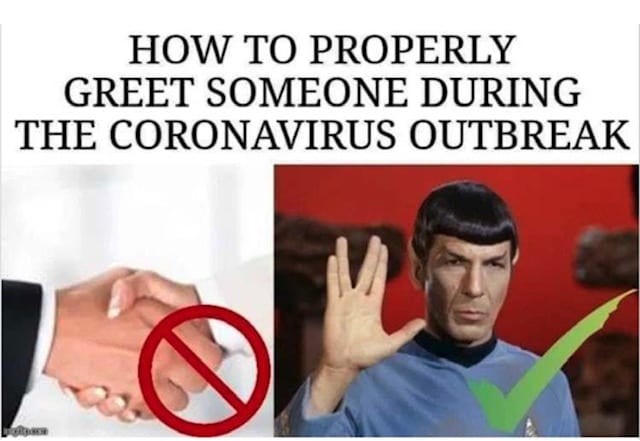So, there's been news going around about Trump either disbanding, cutting funding for, or drastically reducing the size of the U.S. pandemic office a few years back. There is now a counter-narrative spearheaded by Tim Morrison calling it fake news. Fox and other outlets are pushing it
hard.
Here's the woman who wrote this WaPo article entitled
I ran the White House pandemic office. Trump closed it.
Beth Cameron, PhD
Vice President, Global Biological Policy and Programs
Beth Cameron is NTI’s vice president for global biological policy and programs.
Cameron previously served as the senior director for global health security and biodefense on the White House National Security Council (NSC) staff, where she was instrumental in developing and launching the Global Health Security Agenda and addressed homeland and national security threats surrounding biosecurity and biosafety, biodefense, emerging infectious disease threats, biological select agents and toxins, dualâ€use research, and bioterrorism.
From 2010â€2013, Cameron served as office director for Cooperative Threat Reduction (CTR) and senior advisor for the Assistant Secretary of Defense for nuclear, chemical and biological defense programs. In this role, she oversaw implementation of the geographic expansion of the Nunnâ€Lugar CTR program. For her work, she was awarded the Office of the Secretary of Defense Medal for Exceptional Civilian Service.
From 2003â€2010 Cameron oversaw expansion of Department of State Global Threat Reduction programs and supported the expansion and extension of the Global Partnership Against the Spread of Weapons and Materials of Mass Destruction, a multilateral framework to improve global CBRN security.
Cameron served as an American Association for the Advancement of Science (AAAS) fellow in the health policy office of Senator Edward M. Kennedy where she worked on the Patients’ Bill of Rights, medical privacy, and legislation to improve the quality of cancer care. From 2001â€2003, she served as a manager of policy research for the American Cancer Society.
Cameron holds a Ph.D. in Biology from the Human Genetics and Molecular Biology Program at the Johns Hopkins University and a BA in Biology from the University of Virginia. Cameron is a member of the Council on Foreign Relations.
Here's the man, Tim Morrison, who wrote this WaPo article entitled
No, the White House didn’t ‘dissolve’ its pandemic response office. I was there.
Tim Morrison
Timothy Aaron Morrison (born c. 1978) is an American Republican political adviser. He was briefly the top U.S. adviser to President Trump on Russia and Europe on the White House National Security Council, a position he took over from his predecessor Fiona Hill in August 2019, and from which he resigned on October 31, 2019.
Before that, he served as senior director for countering weapons of mass destruction -- "arms control and biodefense issues" -- on the US National Security Council, a position he assumed on July 9, 2018. Until then, he was policy director for the Republican staff on the House defense panel. Morrison entered politics as a professional staff member to Rep. Mark Kennedy, from 2000 to 2007. One day before his scheduled testimony to the impeachment inquiry against Donald Trump on October 31, 2019, Morrison was reported to be leaving his post soon as the senior director for European and Russian affairs on the National Security Council. He was to be replaced by Andrew Peek, at the time Deputy Assistant Secretary of State for Iraq and Iran in the Bureau of Near Eastern Affairs.
Morrison holds a Juris Doctor from George Washington University and a BA in Political Science from the University of Minnesota.
Morrison was among the people listening in on the July 25, 2019 phone conversation between President Trump and Ukrainian President Volodymyr Zelensky that is central to the impeachment inquiry against Donald Trump. He was a primary source of information regarding the matter to William B. Taylor, Jr., the acting US ambassador to Ukraine.
Morrison's deposition in the impeachment inquiry against Donald Trump, given behind closed doors on October 31, partially corroborated the earlier deposition by Taylor, in particular that U.S. Ambassador to the E.U. Gordon Sondland had told Andrey Yermak, an aide to Zelensky via telephone that military aid to Ukraine, and a White house meeting with Trump, were conditional on a Ukrainian public announcement of an investigation into Burisma, and the Ukraine involvement in the 2016 U.S. Presidential election. Morrison also testified that his concerns regarding the Trump–Zelensky call, which he promptly communicated to White House lawyers, were about repercussions if the transcript of the call was to be leaked, not about the legality of its content or quid pro quo. According to official transcripts of Morrison's closed door testimony, Morrison stated, "I want to be clear, I was not concerned that anything illegal was discussed," in the telephone call between Trump and Zelensky. Morrison also testified that Ukrainian officials were not aware that certain military funding had been delayed by the Trump administration until late August 2019, more than a month after the Trump-Zelensky call.
During public testimony before the U.S. House of Representatives on November 19, 2019, Morrison stated that Sondland confirmed to him that there was indeed a quid pro quo requirement for US aid to Ukraine, and again brought up the telephone conversation between Sondland and Yermak, which took place on September 1, 2019.




